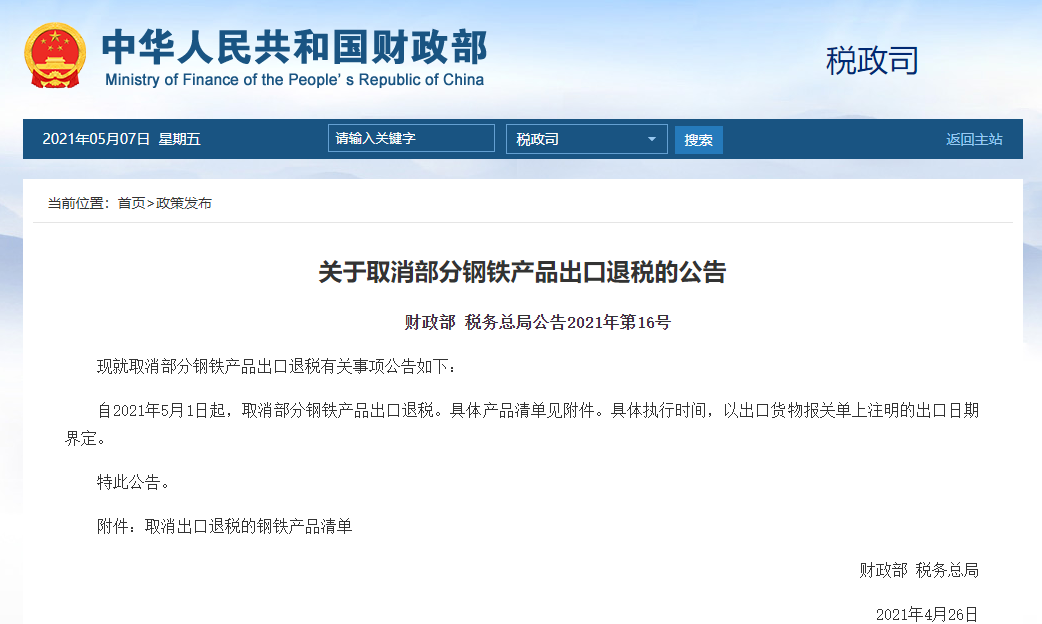Cancel the export tax rebate of some steel products, is it good or bad for the steel industry?
Tariffs on some steel products will be adjusted from May 1, 2021, according to a notice posted on the website of the Ministry of Finance.Among them, pig iron, crude steel, recycled steel raw materials, ferrochrome and other products to implement zero import tariff rate;We will appropriately raise export tariffs on ferrosilica, ferrochrome and high purity pig iron, and apply the adjusted export tax rate of 25%, provisional export tax rate of 20% and provisional export tax rate of 15% respectively.The above adjustment measures are conducive to reducing the import cost, expanding the import of steel resources, supporting the domestic reduction of crude steel production, guiding the steel industry to reduce the total amount of energy consumption, and promoting the transformation and upgrading of the steel industry and high-quality development.
In fact, this announcement for the iron and steel industry has been suppressed, but also guaranteed.First of all, after seeing this announcement, I felt that the steel could not be exported, but could only be imported, which indicated that the domestic steel was in short supply, so it would rise.
Once exports are curbed, steelmakers’ profits will be squeezed further.Iron ore is booming like crazy, but steelmakers are the only ones. They may not stockpile a lot of iron ore, which could lead to high costs, and profit will be further squeezed after export tariffs are raised.That could lead to lower earnings for steel producers.
First, let’s take a look at the situation outside of the country, where iron ore has begun to creep upward in line with domestic expectations of high inflation on the way.The announcement, which curbs steel exports, is also intended to curb the rise in iron ore prices and prevent high inflation from affecting people’s livelihood.But it also reveals an important piece of information that could have the opposite effect.
First of all, even the Ministry of Finance has acted to control the growth of iron ore, then it also reveals that this has become a “worldwide problem”, iron ore really will continue to rise in price.Although the domestic pressure exports, but foreign demand unchanged, foreign steel is still in dawdling to rise, domestic don’t follow it?And if foreign demand does not change, they will hold their noses and pay even if steel prices soar, because that is where the demand is.Then it will lead to higher and higher prices, and finally become a “premium” or even a “bubble” product.So this time the policy is actually just setting a ceiling on the price of steel, because if the price is too high to be acceptable, this is not what the policy wants to see.So this policy will not affect the steel price to continue to rise, but will promote the price to continue to rise.
So in general, as long as inflation expectations are still in, so after this policy, steel may be suppressed in the short term, but in the short term, or will continue to rise.In the long run, these industries will inevitably continue to fall as long as global currencies begin to contract, followed by deflation, which no one knows when.


